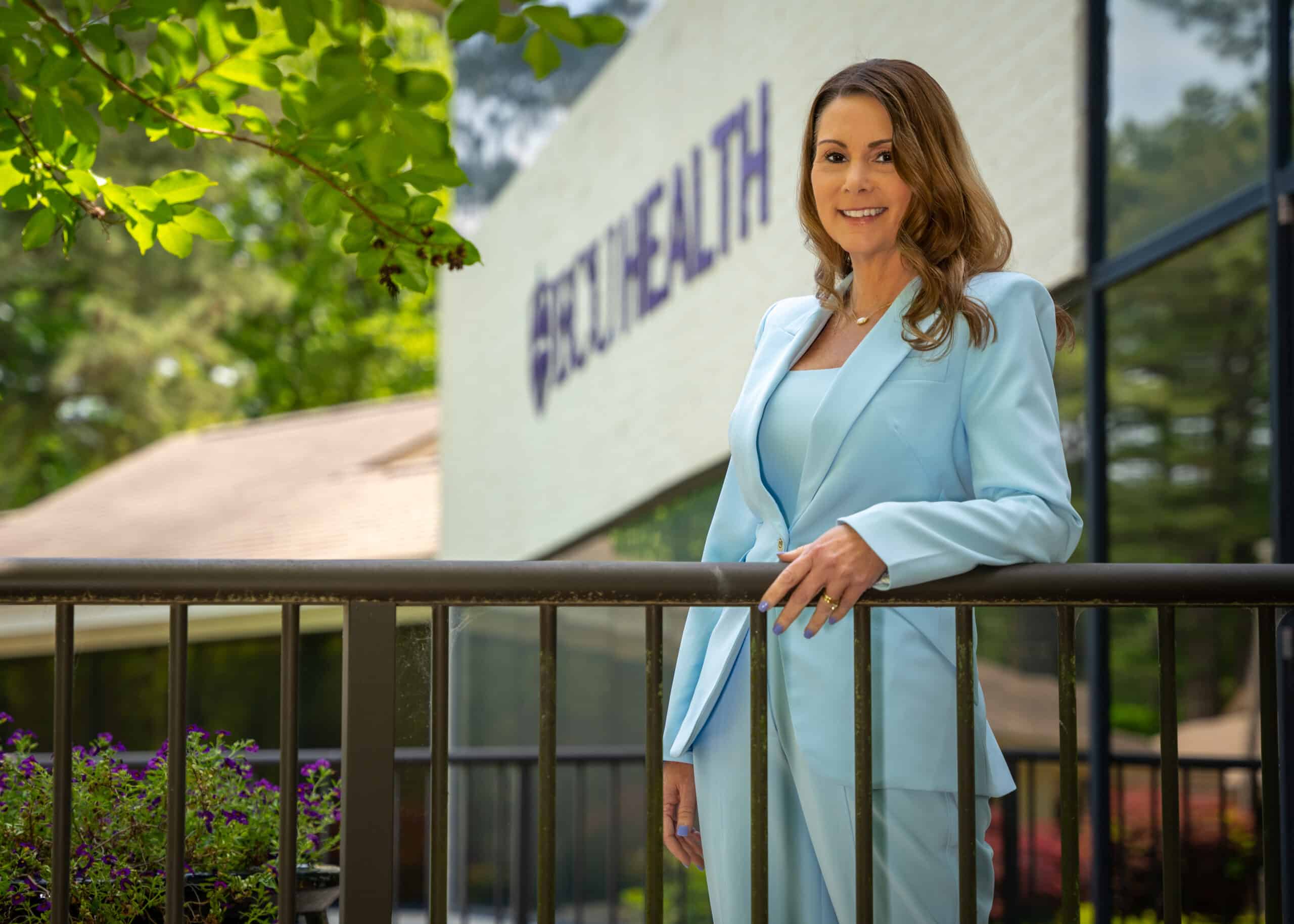To be a health care provider is to answer a calling. For some, the journey to health care is a straight line; for others, the road is winding. This series features stories from ECU Health team members who took the winding road, but found the destination to be worth the effort.
“Nursing was not my first plan.”
That may be a surprising admission from Trish Baise, Chief Nursing Executive at ECU Health, but she’s very clear that she did not initially intend to pursue a career in health care.
“From first grade on, I was going to go to law school and join the FBI,” Baise said, but those plans fell flat during her freshman year of college. “I got to college and felt overwhelmed my freshman year. I wasn’t excited about the classes I was taking.”
Like many students, Baise worked full time to put herself through college; during that time, she took a student job dispatching for the police department. She continued taking classes, despite not being sure how to proceed with her career.
“I still thought I might go to law school, but I wasn’t entirely sure,” Baise said. “I was just trying to get my undergraduate work completed.”
At that point, Baise said she ended up getting married and had her first child, still with no degree. “I was taking classes part time and working full time, this time dispatching for the fire department,” Baise said. To do that, she was required to get her Emergency Medical Technician (EMT) license, and that’s when the lightbulb went off.
“I realized I preferred being on the ambulance as opposed to dispatching,” Baise said. “I wanted to be in the action.”
Baise said what drew her to health care was the focus on team and purpose; it was clear to her the impact these providers had every day. “That’s when I found my calling, and it started me off in a completely different direction than I thought I was going to go,” she said. Baise then enrolled in nursing school to get her associate’s degree.
Despite the hard turn from law, Baise said her previous jobs and education have absolutely influenced her current work.
“My mind works in an investigative way, seeking the truth,” Baise explained. “A large part of my work, especially in leadership, but also as a clinician, is gathering data, finding facts, getting to the truth and identifying what information you need to make an informed decision and plan. The law and regulatory classes I took as a student — you have to have a broad understanding of these things in health care. They impact the decisions we make.”
Having that baseline knowledge helped Baise be successful as she transitioned from the bedside to leadership roles, even if being a nurse leader wasn’t her intention.
“I had a mentor who joked that some people walk forward through a door, but I’ve been backing in the door my whole career,” Baise laughed. “I always ended up migrating toward positions with leadership responsibility, even if I wasn’t actively seeking out those things. I just saw a gap and I had a skill set that would be helpful. I’ve always wanted to know where I can make the biggest impact, to lead and inspire teams and to transform.”

That keys in to Baise’s calling to “report to someone I’m ethically aligned with, build a great team and do great things together.” Leadership, she said, allows her to fulfill that personal mission in big ways.
Achieving her own goals has been made possible by working with ECU Health.
“I just celebrated my year anniversary,” Baise said. “ECU Health’s mission brought me here. I’m aligned ethically with the mission, and we have a huge runway in front of us to do great things together. There is no better space to do great things than here, where we can be creative and we have an academic medical center that can provide any procedure.” The availability of resources to support nurses and rural health care is another big draw for Baise: “We can put things in place to achieve our goal of being a national model for nursing excellence and rural medicine. As my career and my desire to impact nursing has grown, ECU Health has given me a chance to achieve those goals.”
To anyone considering a career in health care, Baise has some simple advice. “I’d say talk to people they know who work in health care. Shadow, volunteer and see what the day-to-day is for those roles.” Baise also noted that there are many options when it comes to working in health care. “It’s so broad that there are clinical options and operational. There’s something for everyone. The key is to find your passion and where your skills can be used best.”
As for Baise’s journey, she said it’s been pretty amazing. “From an EMT to a paramedic, to a nurse ranging from an associate’s degree to a doctorate, and now in a leadership role, I’ve loved every minute of it. It was not my original plan, but the non-plan plan has worked out pretty well.”